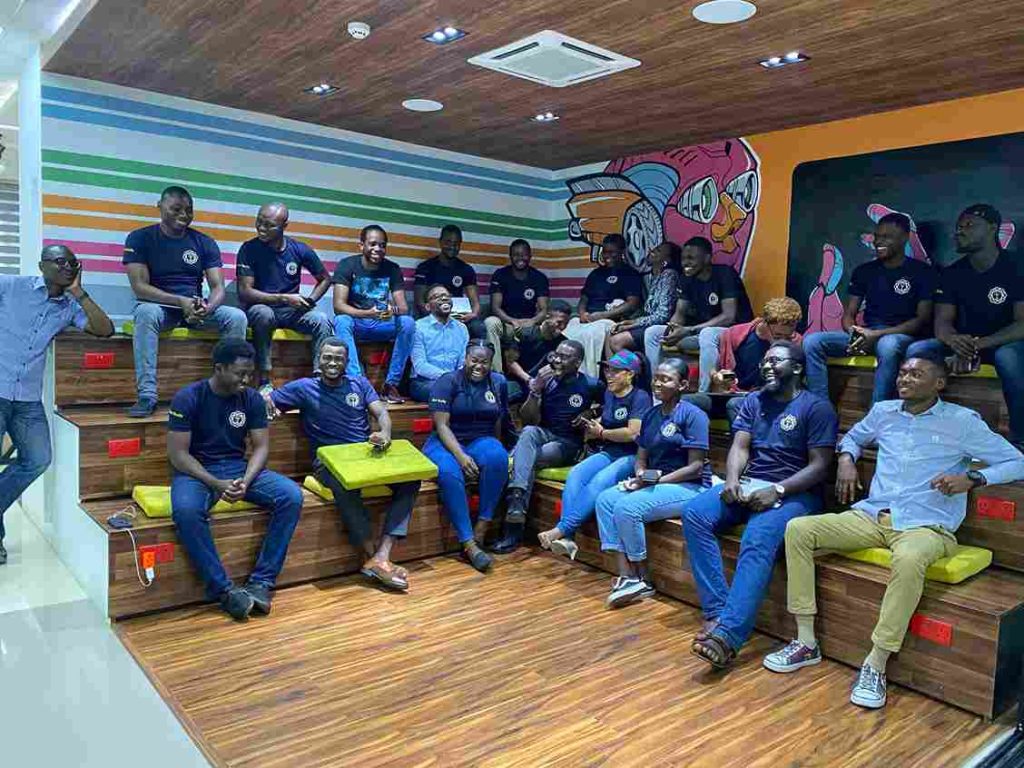What is Software Engineering?
Software engineering is a rewarding and versatile career that enables individuals to design, develop, maintain, and improve the technology we rely on daily. From the apps on your phone to the complex systems that power global businesses, software engineering is at the heart of modern innovation.
Whether you’re dreaming of building innovative applications, enhancing security systems, or managing the backend of your favourite platforms, understanding software engineering is the first step in this exciting journey.
At its core, software engineering is the systematic application of engineering principles to the development and maintenance of software. It combines technical expertise with creativity, problem-solving, and a passion for technology, driving progress in industries ranging from healthcare to finance and entertainment.
The Importance of Software Engineering
In today’s increasingly digital world, software engineering is indispensable. Here’s why it plays a crucial role in society:
- Efficiency and Productivity: Software automates manual processes, reduces human error, and improves efficiency across industries. For instance, payroll systems streamline salary management, while customer relationship management (CRM) tools optimize interactions with clients.
- Global Connectivity: Thanks to software, people can communicate and collaborate effortlessly across borders. Platforms like Zoom, WhatsApp, and Slack have revolutionized how we connect personally and professionally.
- Innovation and Solutions: Software engineering is the driving force behind groundbreaking innovations, from artificial intelligence (AI) and machine learning to blockchain and cybersecurity.
- Economic Growth: The global economy depends on technology, and software engineers are central to this growth. Startups, enterprises, and governments rely on software to create jobs, streamline operations, and foster innovation.
What Do Software Engineers Do?
Software engineers play a dynamic role in the tech industry. Their responsibilities vary depending on their specialization, but typically, they:
- Design, develop, and test software applications: This includes mobile apps, web platforms, and large-scale enterprise systems.
- Work across industries: From healthcare to gaming, software engineers are in demand across diverse sectors. For example, engineers in the fintech industry create secure payment systems, while those in gaming build immersive virtual worlds.
- Collaborate with teams: Software development often involves working with designers, product managers, and other engineers to bring ideas to life.
Roles and Responsibilities of Software Engineers
Software engineers can choose from various specializations, each with its unique focus:
- Frontend Development: Frontend engineers design and implement user interfaces (UI) to ensure a seamless user experience (UX). For example, they make sure that websites are visually appealing and responsive across different devices.
- Backend Development: Backend engineers handle the “behind-the-scenes” functionality of applications. They work with servers, databases, and APIs to ensure that systems run smoothly and securely.
- Full-Stack Development: Full-stack developers combine frontend and backend skills to build end-to-end applications. Their versatility makes them highly valuable in the job market.
- Mobile Development: Mobile developers specialize in creating applications for iOS and Android devices. Popular apps like Instagram and Spotify are built by skilled mobile engineers.
- DevOps Engineering: DevOps engineers focus on optimizing software deployment, monitoring, and maintenance processes. They ensure that updates and changes are delivered efficiently without disrupting users.
- Data Engineering: Data engineers manage the infrastructure needed to collect, store, and analyze large volumes of data. Their work is crucial for industries like e-commerce, where customer insights drive decision-making.
In addition to these specializations, software engineers are responsible for debugging, documenting code, and continuously improving systems to meet evolving user needs.
How to Become a Software Engineer
Step 1: Choose Your Path
Software engineering offers numerous specializations. Whether you’re interested in creating mobile apps, managing data systems, or working on cutting-edge AI, there’s a niche for you. Research each field and choose one that aligns with your strengths and interests.
Step 2: Learn Programming Basics
Start with beginner-friendly programming languages:
- Python: Ideal for beginners due to its simplicity and broad applications.
- JavaScript: Essential for building websites and interactive applications.
- Java: Commonly used for mobile app development and enterprise systems.
Explore core programming concepts like loops, conditionals, functions, and object-oriented programming to establish a strong foundation.
Step 3: Master Essential Tools
Proficiency with tools and technologies is crucial for success in software engineering:
- Version Control: Tools like Git and GitHub help manage code efficiently.
- Text Editors: Visual Studio Code (VS Code) and Sublime are popular options.
- Operating Systems: Familiarity with Linux, macOS, and Windows enhances your flexibility as an engineer.
Step 4: Build a Strong Foundation
Deepen your knowledge of software engineering fundamentals:
- Algorithms and Data Structures: Essential for solving complex problems.
- Databases: Learn SQL for relational databases and NoSQL for non-relational systems like MongoDB.
- Development Methodologies: Agile and Scrum frameworks are widely used in software teams.
Step 5: Pursue Formal Education or Self-Learning
There are multiple paths to becoming a software engineer:
- University Degrees: A degree in computer science provides a structured foundation.
- Bootcamps: Intensive programs focus on practical, hands-on training.
- Self-Learning: Platforms like Codecademy, Coursera, and freeCodeCamp offer affordable options to learn at your own pace.
Step 6: Build a Portfolio
Practical experience is key to showcasing your skills. Work on:
- Personal Projects: Create apps, games, or websites to demonstrate your abilities.
- Open-Source Contributions: Collaborate with others on GitHub projects.
- Freelance Work: Gain real-world experience by working with clients.
Step 7: Gain Internship Experience
Internships offer invaluable opportunities to:
- Solve real-world challenges.
- Network with industry professionals.
- Gain insights into different career paths.
Step 8: Stay Updated
The tech industry evolves rapidly. Keep learning by:
- Following blogs, podcasts, and industry leaders on social media.
- Attending tech meetups, conferences, and webinars.
- Participating in coding challenges and hackathons.
Step 9: Prepare for Job Applications
When you’re ready to apply for jobs, focus on these key areas:
- Resume: Highlight your skills, projects, and achievements.
- LinkedIn Profile: Build connections and showcase your expertise.
- Interview Prep: Practice coding interviews on platforms like LeetCode, HackerRank, and Codewars.
Essential Skills for Software Engineers
To thrive as a software engineer, you’ll need a combination of technical and soft skills:
- Technical Expertise: Proficiency in programming languages, databases, and tools.
- Problem-solving: Analytical thinking to tackle complex challenges.
- Teamwork: Collaborating effectively with colleagues from diverse backgrounds.
- Adaptability: Staying current with industry trends and emerging technologies.
Soft skills like communication, time management, and leadership are also vital for career growth.
Career Progression in Software Engineering
A career in software engineering offers plenty of opportunities for advancement:
- Junior Software Engineer: Focuses on learning and assisting with tasks.
- Software Engineer: Takes on more responsibility and handles projects independently.
- Senior Software Engineer: Leads projects, mentors juniors, and contributes to technical strategies.
- Tech Lead or Engineering Manager: Oversees teams and ensures successful project delivery.
- Specialized Roles: Opportunities in AI, cybersecurity, or blockchain development.
- Chief Technology Officer (CTO): Shapes the technological vision of an organization.
Why Choose Software Engineering?
Software engineering offers numerous benefits:
- Diverse Opportunities: Work in industries like healthcare, gaming, and finance.
- Creative Problem-Solving: Combine technical expertise with innovation.
- Job Security: High demand ensures stability and growth.
- Financial Rewards: Competitive salaries and growth opportunities.
Conclusion
Software engineering is a dynamic and rewarding career that combines creativity, innovation, and endless opportunities for growth. From building user-friendly applications to designing secure systems and managing massive data sets, the impact of a software engineer’s work is felt worldwide.
By mastering essential skills, staying adaptable, and following the right roadmap, you can carve out a successful career in this exciting field.
At The Bulb Institute, we provide the perfect environment to help you thrive. With access to expert mentors, real-world projects, and a supportive learning community, we’re committed to equipping you with the tools you need to excel. Our tailored career support and industry-relevant training ensure you’re ready to land your dream role and make a lasting impact in tech.
Don’t wait to start your journey—join us today and become part of the driving force shaping the future of technology! Register now and take your first step toward a fulfilling career in software engineering.


